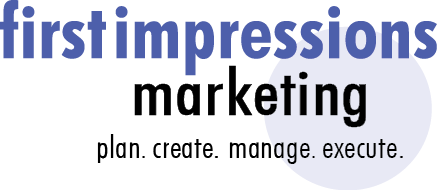Writing a Solid Business Plan
If you think that a business plan is just for new businesses – think again. Lots of businesses of all stages and ages are going back to the drawing board to write up a solid business plan. Today my guest was Clarence Fullard, an expert who teaches companies how to create their own business plan.
Q. Who needs a business plan? Is it just for starting businesses?
A. It’s not just for start-ups. Any business that is looking for outside funding needs to have one. It’s also good for internal operational usage. It’s basically a financial road map that shows you how to get from Point A to Point B in a way that’s profitable and feasible.
Q. Can I hire an expert to write a plan for me?
A. You shouldn’t outsource this – it’s an opportunity to learn about your business.
Q. What are the components of a good plan?
A. There are many parts of a plan:
- Purpose: what your goal is
- Products/Services: description of your key products/services. Don’t go overboard with this if you’re looking for funding. This should be a brief but thorough document.
- Company Description: Who you are and what services you provide
- Target Marketings: who your potential customers are – where they shop, what they read, etc. Whatever details are important in the purchasing process – include them.
- Marketing Strategy: A summary of marketing tools you plan to use to grow your business and attract customers
- Management: Who is responsible for which tasks?
- Personnel: Job descriptions of your employees or future employees and their responsibilities
- Competitors: Who they are, what they are doing well and poorly. For reliable information about your competitors, go to the library and use a software program called Reference USA. Also reviewing their websites is a telling resource.
- Pricing: List of how your products/services are priced. Competitors are a valuable resource for this.
Some tips:
1. When writing your plan, keep it short, but include detail. An investor or financial institution does not want to read 100 pages about your company – get to the point, with good examples.
2. Don’t use industry jargon that others won’t understand
3. Recognize potential problems, don’t try and hide them from investors. It’s possible that what you see as a negative, others view as a positive, or they have the means to fix.
Q: Is there an accurate way to calculate early projections?
A. There is no way that is 100% accurate.
Q. What kinds of financing is available?
A. There’s the “Friends and Family” route, credit cards (not a good idea), microloans (under $50,000) and banks. A home equity loan might offer you a better rate. If you’re looking for an SBA loan (for small businesses), you need to go through a bank. There are some banks that are more receptive to offering small business loans than others – find out which ones are the best in your community.
Source: Rutgers Small Business Development Center
To listen to other segments, go to: Marketing Chat with Nancy Sipera




